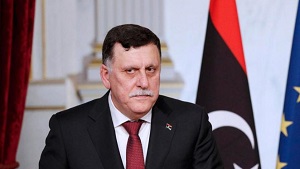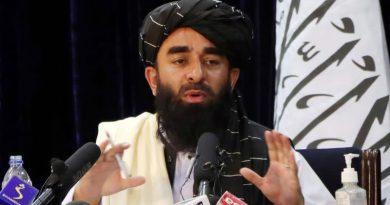Libya will face “catastrophe” if oil blockade continues: Tripoli premier
Berlin (Reuters) – Libya will face a “catastrophic situation” unless foreign powers put pressure on eastern-based commander Khalifa Haftar to lift a blockade of oilfields that has cut output to almost zero, the country’s internationally recognised premier said on Monday.
Since Friday, Haftar’s forces have closed Libya’s major oil ports in a power play as European and Arab powers and the United States were meeting with his supporters in Berlin to push him to halt a campaign to capture the capital Tripoli.
Tripoli-based Prime Minister Fayez al-Serraj told Reuters he rejects eastern demands to link a reopening of oil ports to a new distribution of oil revenues among Libyans, saying such income was in any case meant to benefit the entire country.
“The situation will be catastrophic should it stay like this,” Serraj said in an interview in Berlin.
“I hope foreign countries will follow the issue,” he said when asked whether he wanted them to lean on Haftar to lift the blockade of Libya’s Mediterranean oil export terminals.
Much of Libya’s oil wealth is located in the east of the sprawling North African state but revenues are channelled through Tripoli-based state oil firm NOC, which says it serves the whole country and stays out of its factional conflicts.
Haftar’s parallel administration has repeatedly sought to export oil while bypassing the NOC but has been thwarted by a United Nations ban, diplomats say.
The NOC sends oil and gas revenues, Libya’s economic lifeline, to the Tripoli-based central bank, which mainly works with Serraj’s government though it also funds some public salaries, fuel and other services in the Haftar-controlled east.
A document sent to oil traders and seen by Reuters on Monday said that the NOC had declared force majeure – a waiver on contractual obligations – on crude loadings from the Sharara and El Feel oilfields in Libya’s southwest.
At least nine oil tankers had been due to load in the coming days from the ports now under force majeure, according to a local shipping source. The NOC had previously declared force majeure for oil ports on Libya’s northeast coast.
Libya has lacked a stable central authority since strongman Muammar Gaddafi was overthrown by NATO-backed rebels in 2011. For more than five years, it has had two rival governments, in the east and the west, with streets controlled by armed groups.


